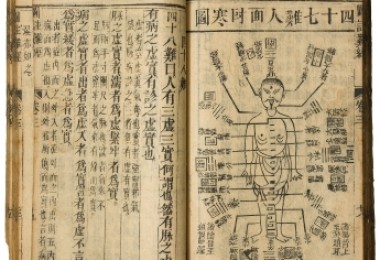Translation Romani has decided to maintain use of the word Romani in all language versions of this website, inclusively and in reference both to the language and people of all the diverse ethnic communities throughout the world, i.e. Roma, Sinti, Manuš, Calé, Romanichal, Kalé, and many others. Please read the important notes from our translators for explanations and other translations currently in use locally, nationally or regionally.
Close this box.
The academic field of Terminology Studies is firmly linked to applied linguistics and specialized translation, and is increasingly connected to computational linguistics, multilingual documentation, information, knowledge and communication sciences, as well as data processing and translation technologies. Although word lists, glossaries and compilations of specialized vocabulary have existed for hundreds of years, sustained scientific and systematic development of the theoretical principles, concepts, practices and methodologies that serve as bases for terminological research and its applications did not transpire until the early 20th c. Historically, creating, collecting, explaining, presenting and managing terminology have all been influential in constructing domains of knowledge and their associated discourses. Knowledge of a scientific nature has been decisive for the evolution of studies in terminology. Prior to the 20th c., the internationalization of science obliged scientists to assume a leading role in discussions on nomenclature, terms and concepts in their respective fields. As recent scholarship has pointed out, however, scientific discourse has routinely been presumed "universal", and as such, many have overlooked the complexities and nuances that emerge from diverse linguistic and cultural traditions. These traditions ultimately have significant bearing on rhetorical frameworks, protocols and on the presentation of concepts and information. The rapid development of technologies in the late 20th c., in tandem with the Internet and use of the English language globally to communicate specialized information --particularly in the domains of medicine, science and technologies-- have once again brought to the fore the need for rigorous research and practice in terminology. Even while languages, cultures and technologies themselves resist absolute standardization, they inevitably depend on agreement of certain protocols for linguistic and technical standards in order to communicate globally and effectively in today`s contemporary world. The International Organization for Standardization (ISO) is one important professional entity responsible for setting industrial and commercial standards.
Eugen Wüster (Vienna School) is normally credited as one of the principal founders of modern Terminology Studies. Today, programs of study around the world usually combine theory and practice, approached from both prescriptive and descriptive methods and perspectives. Terms and concepts, which fundamentally organize our knowledge and understanding of the world, are the chief building blocks of Terminology Studies. Basically, a precise definition of a term is the linguistic articulation of a mental concept, which when put in relation to other concepts, combine to create a structure of knowledge characteristic of a specialized domain. Mapping out concepts and terms relationally finds its useful practicality later in standardization initiatives and information retrieval strategies. Socioterminology, sociocognitive terminology and communicative terminology theories and methodologies observe and describe how terminology and language are actually used in everyday life. For these approaches, terms are considered to be context-dependent with dynamically fluid boundaries. Their representation is non-prescriptively confined to actual usage. Terminography is the methodology-based practice of collecting, describing, and processing specialized terms, while terminotics refers to the practice of terminography assisted by computer tools and technologies, such as those designed for term extraction and parallel corpora creation. Bilingual and multilingual terminology records and databases reflect the special circumstances of translation, given that target terms, concepts and structures of knowledge are not identical between languages. Professional terminologists make use of a wide array of methodologies and practices in their work, while professional translators tend to use less sophisticated programs for terminology database creation, usually restricted to the creation of bilingual or multilingual records that contain minimal information like grammatical categories, sources, etc.
References:
Bowker, Lynne (ed), Lexicography, terminology, and Translation, Ottawa: University of Ottawa Press, 2006.
Budin, Gerhard (2009), "From Terminologies to Ontologies – Advances in Knowledge Organization" presentation posted on TermNet – International Network for Terminology, "Terminology Blog".
Cabré, M. Teresa (1999), Terminology: Theory, methods and applications, Amsterdam/Philadelphia: John Benjamins Publishing.
Gambier, Yves and Luc Van Doorslaer (eds), Handbook of Translation Studies. Vol. 1, Amsterdam / Philadelphia: John Benjamins Publishing Company, 2010. Also online. Translation Studies Bibliography Online (2004).
L`Homme, Marie-Claude (2008), Initiation à la traductique. 2e édition revue et augmentée, Montreal: linguatech éditeur inc.
L`Homme, Marie-Claude (2004), La terminologie : principes et techniques, Montreal: Les Presses de l`Université de Montréal.
L`Homme, Marie-Claude and Sylvie Vandaele (eds), Lexicographie et Terminologie : Compatibilité des modèles et des méthodes, Ottawa: Les Presses de l`Université d`Ottawa, 2007.
Montgomery, Scott L. (2000), Science in Translation. Movements of Knowledge through Cultures and Time, Chicago/London: The University of Chicago Press.
Wright, Sue Ellen, and Gerhard Budin (1997), Handbook of Terminology Management, Amsterdam / Philadelphia: John Benjamins Publishing Company.

Chi halyarav (Kalderash)
Na hačarav tut. (Gurbeti)
Chi hatyarav. (Lovari)
Chi lav tut kan. (Xoraxane)


